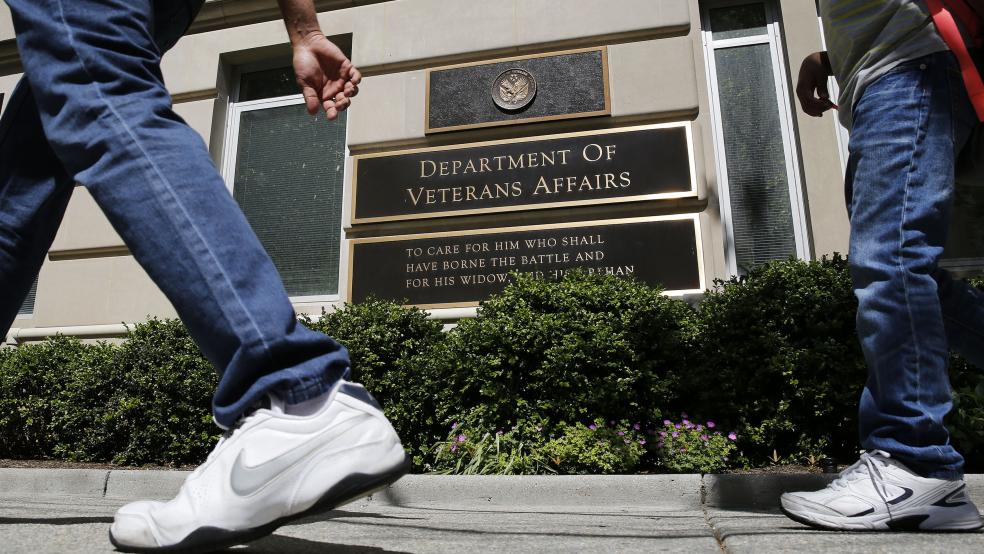Veterans Affairs Secretary Bob McDonald is trying desperately to convince the public that his embattled agency is on the road to reform. Investigations last year revealed the VA had engaged in cover-ups over hidden wait lists that kept veterans’ from getting the medical attention they needed for months—sometimes longer.
While the VA chief says his agency is turning around, two federal auditors have issued new reports blasting the VA health system for huge gaps in oversight, serious management issues and IT failures that put facilities “at risk of not fulfilling their mission.”
Related: VA Wastes Millions, But Still Wants More as Vets Wait for Care
The auditors voiced their concerns during a hearing this past week before the Senate Veterans' Affairs Committee, where they explained why the VA’s health system was placed on the Government Accountability Office’s annual “high risk list” that flags the most troubled federal programs.
“Risks to the timeliness, cost-effectiveness, quality and safety of veterans' healthcare, along with other persistent weaknesses GAO and others have identified in recent years, raised serious concerns about VA's management and oversight of its healthcare system," GAO Healthcare Director Debra Draper said.
She went on to describe the most troubling areas that she said put the VA health system at “risk of failing to serve its mission” including inconsistent management policies and processes, inadequate oversight, major problems with its information technology systems and inadequate training for staff.
The VA’s own inspector general had a very similar assessment to the GAO’s, which stands in stark comparison to the VA chief’s outlook on his agency.
John Daigh, the assistant inspector general for the VA echoed Draper’s concerns before the committee: "Too often management decisions compromise the most important mission of providing veterans with quality healthcare.”
Related: Here’s the Latest Outrage from Veterans Affairs
He described findings from a recent probe of smaller hospitals with specialty units and said that it was very challenging for his team to find accurate and unbiased peer reviews of cases and patient care assessments. Because of that, it was very hard to determine whether veterans at these hospitals were receiving quality care.
That probe comes nearly a year after Congress approved a $16 billion VA reform bill to help the embattled agency serve more people and improve oversight and accountability in care at facilities across the country.
VA Secretary McDonald told reporters last week that the VA is improving and has hired about 800 more doctors and 2,000 nurses to accommodate the increasing demand for treatment as more veterans reach older age and require more care.
Still an independent analysis from the Associated Press said the VA hasn’t improved in meeting that demand. The AP study says between August and February, almost 900,000 appointments nationwide failed to meet the agency’s required timeliness standards, and that it took longer than 30 days to see a doctor.
Though auditors acknowledge that it’s going to take more than a year to get the VA back on track, the reports call into question whether Congress’s massive bill –essentially throwing billions of dollars at the program—will succeed.
Last week, McDonald announced the agency is creating an 11-member advisory board—the Special Medical Advisory Group—that will be tasked with the overall reform efforts. The board will be comprised of doctors and health experts familiar with what works best in private, nonprofit and public facilities. McDonald told reporters that the advisory board will “return the VA to pre-eminence.”
Top Reads at The Fiscal Times:





